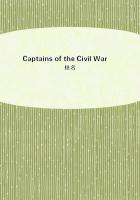Darwin brought back from his scientific travels the view that plant and animal species are not constant but subject to variation. In order to follow up this idea after his return home there was no better field available than that of the breeding of animals and plants. It is precisely in this field that England is the classical country; the achievements of other countries, for example Germany, fall far short of what England has achieved in this connection. Moreover, most of these successes have been won during the last hundred years, so that there is very little difficulty in establishing the facts. Darwin found that this breeding produced artificially, among animals and plants of the same species, differences greater than those found in what are generally recognised as different species. Thus was established on the one hand the variability of species up to a certain point, and on the other the possibility of a common ancestry for organisms with different specific characteristics. Darwin then investigated whether there were not possibly causes in nature which -- without the conscious intention of the breeder -- would nevertheless in the long run produce in living organisms changes similar to those produced by artificial selection.
He discovered these causes in the disproportion between the immense number of germs created by nature and the insignificant number of organisms which actually attain maturity. But as each germ strives to develop, there necessarily arises a struggle for existence which manifests itself not merely as direct bodily combat or devouring, but also as a struggle for space and light, even in the case of plants. And it is evident that in this struggle those individuals which have some individual peculiarity, however insignificant, that gives them an advantage in the struggle for existence will have the best prospect of reaching maturity and propagating themselves. These individual peculiarities have thus the tendency to descend by heredity, and when they occur among many individuals of the same species, to become more pronounced through accumulated heredity in the direction once taken; while those individuals which do not possess these peculiarities succumb more easily in the struggle for existence and gradually disappear. In this way a species is altered through natural selection, through the survival of the fittest.
Against this Darwinian theory Herr Dühring now says that the origin of the idea of the struggle for existence, as, he claims, Darwin himself admitted, has to be sought in a generalisation of the views of the economist and theoretician of population, Malthus, and that the idea therefore suffers from all the defects inherent in the priestly Malthusian ideas of over-population {D. Ph. 101}. -- Now Darwin would not dream of saying that the origin of the idea of the struggle for existence is to be found in Malthus. He only says that his theory of the struggle for existence is the theory of Malthus applied to the animal and plant world as a whole. However great the blunder made by Darwin in accepting the Malthusian theory so *****ly and uncritically, nevertheless anyone can see at the first glance that no Malthusian spectacles are required to perceive the struggle for existence in nature -- the contradiction between the countless host of germs which nature so lavishly produces and the small number of those which ever reach maturity, a contradiction which in fact for the most part finds its solution in a struggle for existence -- often of extreme cruelty. And just as the law of wages has maintained its validity even after the Malthusian arguments on which Ricardo based it have long been consigned to oblivion, so likewise the struggle for existence can take place in nature, even without any Malthusian interpretation. For that matter, the organisms of nature also have their laws of population, which have been left practically uninvestigated, although their establishment would be of decisive importance for the theory of the evolution of species.
But who was it that lent decisive impetus to work in this direction too?
No other than Darwin.
Herr Dühring carefully avoids an examination of this positive side of the question. Instead, the struggle for existence is arraigned again and again. It is obvious, according to him, that there can be no talk of a struggle for existence among unconscious plants and good-natured plant-eaters:
"in the precise and definite sense the struggle for existence is found in the realm of brutality to the extent that animals live on prey and its devourment" {118}.
And after he has reduced the idea of the struggle for existence to these narrow limits he can give full vent to his indignation at the brutality of this idea, which he himself has restricted to brutality. But this moral indignation only rebounds upon Herr Dühring himself, who is indeed the only author of the struggle for existence in this limited conception and is therefore solely responsible for it. It is consequently not Darwin who "sought the laws and understanding of all nature's actions in the kingdom of the brutes" {117}, -- Darwin had in fact expressly included the whole of organic nature in the struggle -- but an imaginary bugbear dressed up by Herr Dühring himself.
The name: the struggle for existence, can for that matter be willingly sacrificed to Herr Dühring's highly moral indignation. That the fact exists also among plants can be demonstrated to him by every meadow, every cornfield, every wood; and the question at issue is not what it is to be called, whether "struggle for existence" or "lack of conditions of life and mechanical effects" {118}, but how this fact influences the preservation or variation of species. On this point Herr Dühring maintains an obstinate and self-equal silence. Therefore for the time being everything may remain as it was in natural selection.















